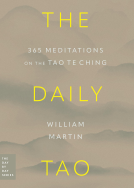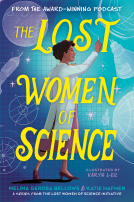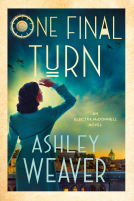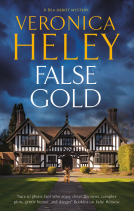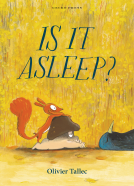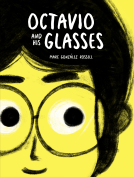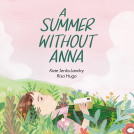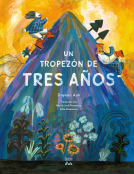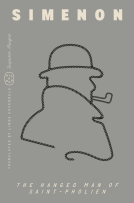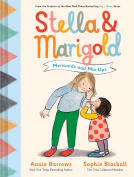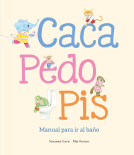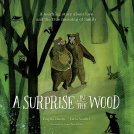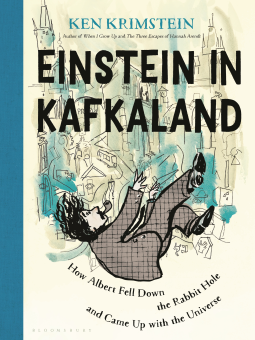
Einstein in Kafkaland
How Albert Fell Down the Rabbit Hole and Came Up with the Universe
by Ken Krimstein
This title was previously available on NetGalley and is now archived.
Send NetGalley books directly to your Kindle or Kindle app
1
To read on a Kindle or Kindle app, please add kindle@netgalley.com as an approved email address to receive files in your Amazon account. Click here for step-by-step instructions.
2
Also find your Kindle email address within your Amazon account, and enter it here.
Pub Date Aug 20 2024 | Archive Date Aug 26 2024
Bloomsbury USA | Bloomsbury Publishing
Talking about this book? Use #EinsteininKafkaland #NetGalley. More hashtag tips!
Description
“Clever, charming, amusing, and just plain brilliant. Ken Krimstein is the most inventive graphic biographer on the planet-and certainly the only one who could explain both Einstein and Kafka. A page turner on gravity and relativity!” -KAI BIRD, Pulitzer Prize-winning co-author of American Prometheus, the biography that inspired the Oscar-winning film Oppenheimer
From the award-winning New Yorker cartoonist, a graphic narrative revealing the pivotal year in Prague when Einstein became “Einstein,” Franz Kafka became “Kafka,” and the world changed forever.
During the year that Prague was home to both Albert Einstein and Franz Kafka from 1911-1912, the trajectory of the two men's lives wove together in uncanny ways-as did their shared desire to tackle the world's biggest questions in Europe's strangest city. In stunning words and pictures, Einstein in Kafkaland reveals the untold story of how their worlds wove together in a cosmic battle for new kinds of truth.
For Einstein, his lost year in Prague became a critical bridge set him on the path to what many consider the greatest scientific discovery of all time, his General Theory of Relativity. And for Kafka, this charmed year was a bridge to writing his first masterpiece, The Judgment. Based on diaries, lectures, letters, and papers from this period amid a planet electrifying itself into modernity, Einstein in Kafkaland brings to life the emergence of a new world where art and science come together in ways we still grapple with today.
A Note From the Publisher
**this full color file is NOT available for Kindle** Apologies for any inconvenience
Available Editions
| EDITION | Other Format |
| ISBN | 9781635579536 |
| PRICE | $32.00 (USD) |
| PAGES | 272 |
Available on NetGalley
Featured Reviews
 Stacey M, Reviewer
Stacey M, Reviewer
I love the loose sketch and watercolor art style in "Einstein in Kafkaland" as it is easy on the eyes. The consistent color palette also makes the reading cohesive.
The narrator is '"famed skeleton who graces the famed astronomical close in Prague" and he is a cheeky character unto himself. He tells of a possible history of a specific time period (1911 to 1912) where two great minds, Einstein and Kafka, in two different fields will emerge with breakthrough ideas that will have lasting impact: Kafka in literature and Einstein in physics.
Admittedly, I found FranzKafka more interesting in this speculative history of Einstein in his Prague years. Einstein, here, is likable but I found him hard to relate to because much of his dialogue is related to his theories so it sometimes feels like reading a legal paper with circular twisting legal jargon. I do like that Mileva gets a chance to address her contributions to Einstein's famous theory. That was a highlight for me even though I know that history (and Einstein) will not treat her well, but that's another story for another time.
Kafka is easier to relate to because he is sort of where many of us are now in that we are struggling to get by, the has his routine, he has a job that his father wanted him to take. He is getting by but his mind is always active. He is stuck in the new industry of insurance and he wants to write literature that shakes up the reader.
In 1912 as it is today, quirky books are a hard sell, or so I've seen on booktube.
Anyway, it makes empathize with Kafka in a way that I don't connect with Einstein. Also, I loved Kafka as the Cheshire cat. I think he would have approved.
The science flew over my head but my son read it when he had some down time. He likes art and science and he enjoyed how science is portrayed in a lively and ALIVE way and of course, "Euclid was awesome." He's not an Einstein fan but he came out liking Einstein more after reading it. Like me, he also liked the bits of surrounding history that grounds the time period, like the theft of the Mona Lisa and the rumblings of problems in Russia.
In its 224 pages, it packs a lot of information and ideas. I had to read it slowly and mostly because of the science, but it was a great read. I loved the format and the style.
 Educator 205244
Educator 205244
One premise for Ken Krimstein’s Einstein in Kafkaland: How Albert Fell Down the Rabbit Hole and Came Up With the Universe (expected, August 2024) is that both Einstein and Kafka, two genius innovators, lived in Prague at the same time, 1911-12. Krimstein, who does his typical deep dive into the research, finds that Kafka (and his buddy, agent Max Brod) was present at the first public talk Einstein gave. Historical fiction, it imagines Kafka (an insurance agent at the time and unknown as a writer) walking and talking to Einstein, who has not had much luck getting work as he struggles with theories of gravity, light, and the nature of the physical universe.
This was at the time Kafka was trying to figure out the nature of the universe from another angle. Krimstein plays around with what they might have had in common: “The same thing you are: The true truth.” Both were nobodies, weirdos, suffered (and made their families suffer) for their obsessions, who moved to the upper echelon of their fields of work. In the same year or so, they both made breakthroughs; Kafka in 1912 published “The Judgement,” that in a way revolutionized literature, and well, Einstein, you know, the General Theory of Relativity.
The loose colorful illustration style (similar to his work on his Hanna Arendt book) invites us into the quirky worlds/minds of Kafka and especially Einstein, and makes it all more accessible. At one point we learn that Alice in Wonderland by Mathematics don Lewis Carroll contains playful connections to a lot of Einstein’s ideas. We meet Einstein’s family, but we do not see him reading the book with his family (lost opportunity, or too much on the nose?). But we do thus get a justification for the subtitle (which is otherwise a contemporary cliche for research obsession) and the basis for a playful approach to the story that has Kafka at one point as the Cheshire Cat!
The book is like a focused biography of a year in the life of Einstein, told with much humor and energy, bringing some insight to non-scientists with contemporary language and easy to understand analogies. Entertaining! Do I understand The Theory of Relativity, really? Well, I’m an English teacher. Maybe neither Kafka and Einstein are completely accessible to the general public. They get reduced to memes. Bu this book takes us out of meme-level and helps us see why they were so great I was lost in a bit of the science, but liked the attempt to make connections between these two guys. It's less about Kafka, of course, so it deals more with scientific squabbles Einstein was having, and imagines a conversation with Euclid.
*Reading should be disruptive, Kafka said, and Einstein would agree that physics should be the same.
*I like it that Einstein’s wife Mileva is asked about her her contributions to her hubby's work. She was herself a scientist, who did most of the kid care, not surprisingly, in 1911, putting off her work for his meteoric rise.
*I was reminded of playwright Tom Stoppard’s Travesties about Zurich in 1917 when three historic figures were present: James Joyce, Lenin, and Tristan Tzara. Ken: send it to Stoppard, in appreciation; maybe he will adapt this!? Why not you?!
Thanks to Net Galley, Bloomsbury Publishing and the author for an early look!
Thanks to Net Galley and Mr. Krimstein for this book. It was as though he pulled it directly from my brain. I didn't know I needed this, but once I saw the title I was intrigued and once I had it in my hot little hands, I was sold. The story is just the way I would want it to be told and the watercolors are beautiful.
Run. Don't. Walk!
Readers who liked this book also liked:
Mamenosuke Fujimaru
Comics, Graphic Novels, Manga, Romance, Sci Fi & Fantasy


